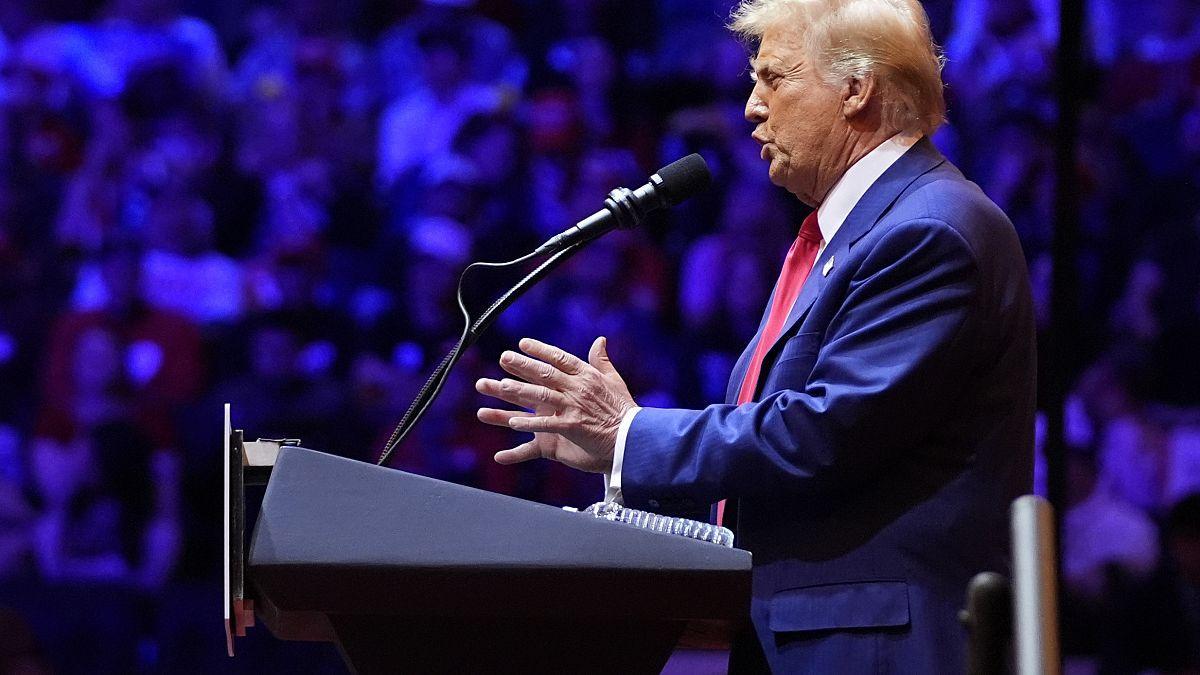EXPLAINED: Why POTUS Trump’s Economic Gamble Is Backfiring Amid Tariffs, Inflation and Fed Showdown
U.S. President Donald Trump’s promises of economic resurgence are being tested amid a flurry of troubling data, rising global trade tensions, and an open conflict with the Federal Reserve.
Despite bold claims that the economy is “booming,” Friday’s jobs report revealed sharp downward revisions and sluggish hiring--just 73,000 new jobs in July and major corrections for May and June. Manufacturing jobs, which Trump has vowed to restore, have shrunk by 37,000 since he launched his new tariffs in April.
 |
| Image Source: Euro News on X |
Her abrupt dismissal, condemned by economists and former officials from both parties, has triggered concerns about the credibility of U.S. economic data globally.
McEntarfer was confirmed by the Senate in 2024 with overwhelming bipartisan support and had served in senior roles across multiple administrations.
Her removal marks a significant break from the longstanding nonpartisan tradition of U.S. statistical agencies.
Trump’s tariff strategy is now reshaping global trade relationships. The latest duties--reaching up to 41%--have impacted allies and rivals alike, creating an unpredictable commercial environment.
While some countries, like Australia and Taiwan, managed to negotiate reduced tariffs, others such as Switzerland, Canada, and South Korea have expressed frustration.
Canada faces a 35% tariff, with Trump citing its alleged failure to curb drug trafficking and its recognition of a Palestinian state.
Switzerland, subject to a 39% tariff, said it regretted the breakdown of negotiations.
The economic fallout is already visible. The U.S. economy’s growth rate has dropped to under 1.3% in the first half of 2025--down from 2.8% in 2024.
Inflation rose to 2.6% annually as of June, up from 2.2% in April, fueled in part by tariff-driven price increases on imports like appliances and furniture.
Despite signs of stagnation, Trump continues to pressure the Federal Reserve for steep interest rate cuts. He has openly called for the Fed’s board to seize control from Chair Jerome Powell, whom he branded a “stubborn moron” for resisting aggressive rate cuts.
The resignation of Fed Governor Adriana Kugler, the only Hispanic on the central bank’s board, has added to the upheaval.
Her early departure, weeks after she supported Powell’s cautionary stance on rate cuts, paves the way for Trump to place an ally on the board.
Trump has hinted at naming figures like Kevin Hassett or Kevin Warsh as replacements--individuals who are more aligned with his push for looser monetary policy.
As Trump sharpens his criticism of the Fed and remakes global trade rules on the fly, financial markets have reacted with unease. U.S. stock indexes slid 1.5% following the weak job data, and international markets--from South Korea to Europe--registered declines tied to new tariff announcements.
Trump’s use of executive power to upend established economic norms is unprecedented in scope. From ousting senior officials to restructuring global trade and pressuring the Fed, he is now unmistakably the central force shaping the American and global economy.
But with polls showing public confidence in his economic leadership slipping--just 38% of Americans approve of his handling of the economy--Trump’s gamble is seemingly entering uncharted territory.
The economic slowdown, combined with inflationary pressure and institutional disruption, is testing whether his high-risk strategy can yield the long-term gains he has promised. With key elections ahead, and further economic shocks possible, the stakes could not be higher.
